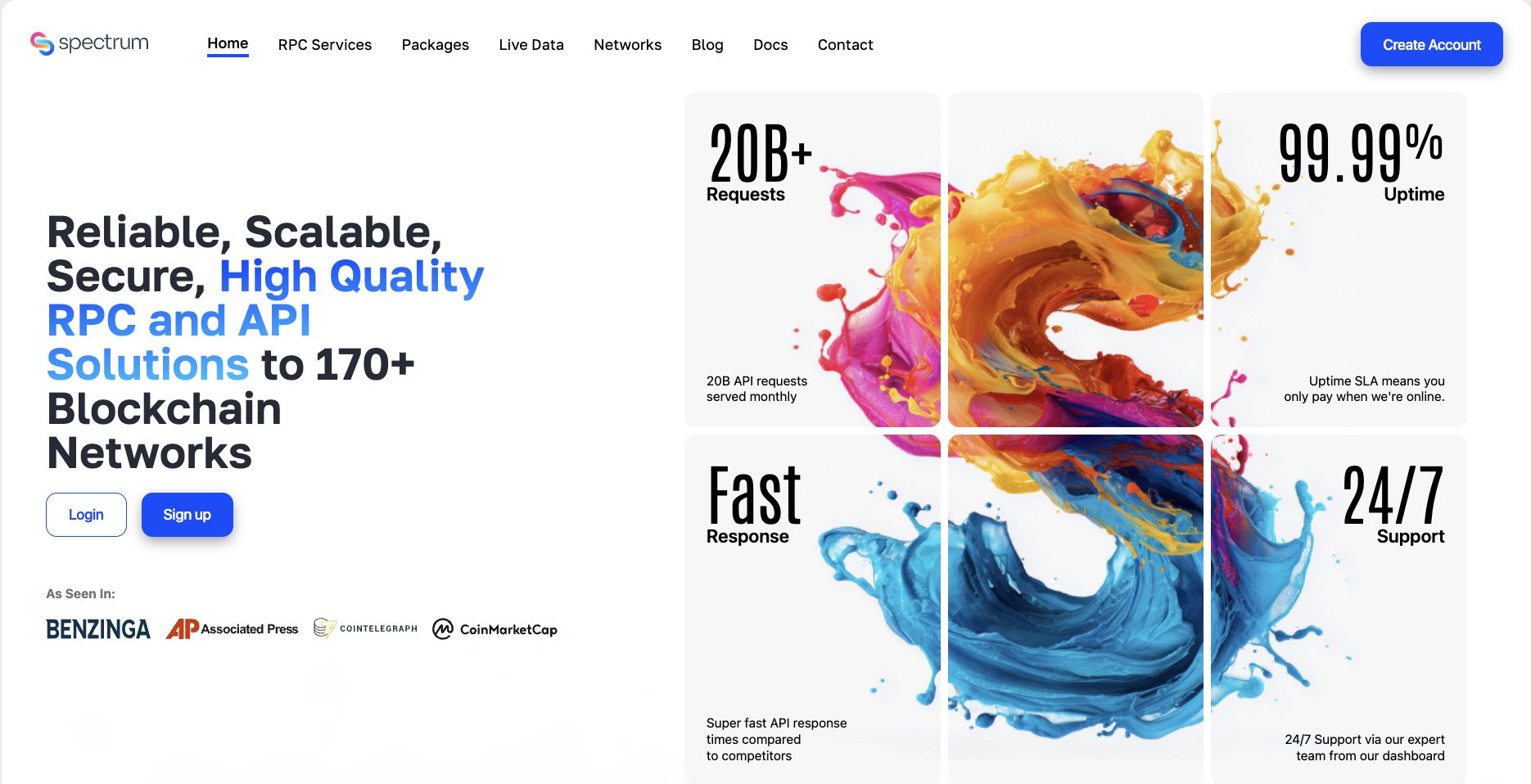As blockchain networks proliferate and decentralized applications (dApps) become increasingly integrated into mainstream use cases, infrastructure providers are playing a critical role in maintaining access, stability, and scalability across the ecosystem. SpectrumNodes.com, operating under the brand name Spectrum, has become a serious contender in the RPC Provider Domain, currently delivering over one billion Remote Procedure Call (RPC) requests per day across more than 175 supported blockchain networks.
“The RPC Provider Spectrum is a flagship project of simplystaking.com, a Maltese Blockchain Infrastructure Company.”
RPC services are the foundation upon which most blockchain interactions are built. From wallet transactions and decentralized exchanges to NFT marketplaces and analytics tools, applications rely on RPC endpoints to communicate with blockchain nodes. As demand for multi-chain access has grown, the need for dependable, high-throughput RPC infrastructure has come into sharper focus.
RPC Provider with globally load balanced bare metal servers
Spectrum provides RPC services through a globally distributed network of bare-metal servers, bypassing cloud centralization in favor of on-premise infrastructure. This architecture is designed to ensure fast, consistent access to blockchain data across multiple geographies, with built-in load balancing for high availability and fault tolerance.
The company’s infrastructure is currently active across three data center locations on two continents. All RPC endpoints are hosted on self-managed hardware, giving Spectrum full control over performance, uptime, and data routing. This physical deployment strategy allows the RPC provider to optimize latency and minimize risk of service interruptions due to third-party cloud outages.

RPC Provider for more than 175 networks
Supporting over 175 blockchain networks, Spectrum’s coverage spans a wide range of protocols, including Ethereum-compatible chains, Layer 2 rollups, smart contract platforms, privacy-focused blockchains, and application-specific networks. The RPC services are used by projects across the blockchain landscape, from consumer-facing applications to institutional platforms requiring secure, high-volume data access.
Spectrum’s infrastructure handles a wide variety of use cases that depend on low-latency RPC performance, including transaction broadcasting, block retrieval, contract calls, and event tracking. The system is built to serve both high-frequency applications and long-lived connections that demand consistent uptime.
The platform operates with load-balanced endpoints to distribute traffic evenly and maintain service continuity. This is particularly critical in periods of network congestion or during peak activity, where delays in RPC responses can directly impact user experience and protocol performance.
Security and operational reliability are key components of Spectrum’s offering. The platform is in the SOC 2 certification process, indicating adherence to best practices in data security, availability, and system monitoring. The certification provides assurance for clients with specific compliance requirements in sectors such as finance, digital identity, and decentralized infrastructure.

The company’s infrastructure is compatible with standard tooling and formats used widely across the blockchain development ecosystem. Developers can interact with Spectrum RPC endpoints using familiar methods, reducing integration overhead and allowing projects to scale without maintaining their own node infrastructure.
Unlike many infrastructure providers that operate primarily in cloud environments, Spectrum’s deployment strategy is centered on direct control and physical infrastructure. This allows for tighter management of system resources and a reduced dependency on third-party service providers. It also provides clients with additional confidence regarding uptime and data sovereignty.
In recent months, Spectrum has gained broader visibility within the Web3 infrastructure space, as institutions and developers seek stable, high-throughput access to multichain environments. The company is currently conducting a funding round to support operational expansion. The raise is intended to reinforce its existing capabilities and meet growing demand from both public and private blockchain ecosystems.

As decentralized applications scale and blockchain-based systems mature, infrastructure providers like Spectrum continue to play a foundational role. The ability to deliver consistent, low-latency RPC service across a wide variety of networks is essential to the daily functioning of the decentralized internet.
At present, Spectrum continues to support critical Web3 operations quietly and reliably – delivering RPC services at scale and helping to ensure the accessibility and resilience of blockchain systems worldwide.
Read more about the RPC Provider Spectrumnodes.com.





























